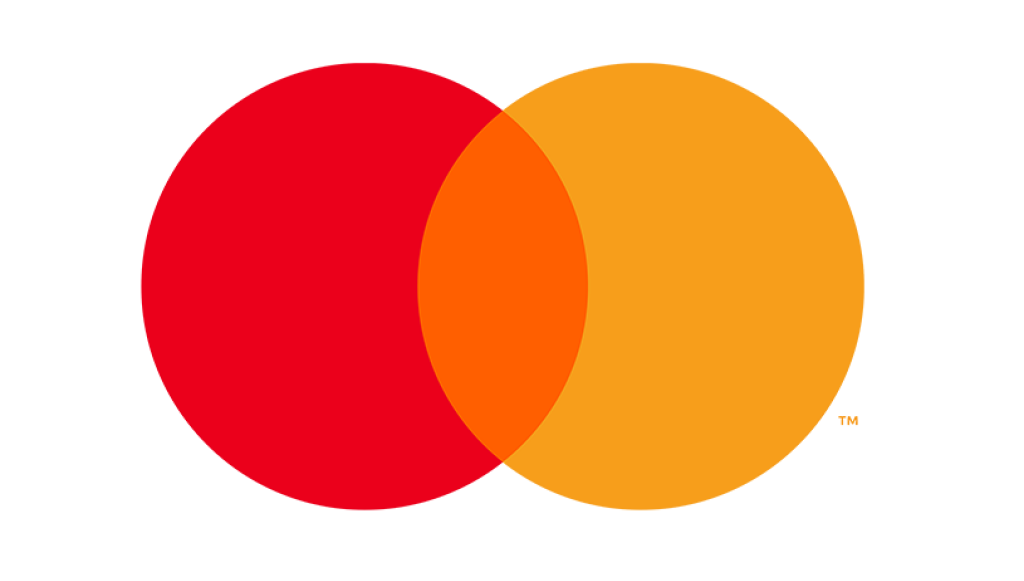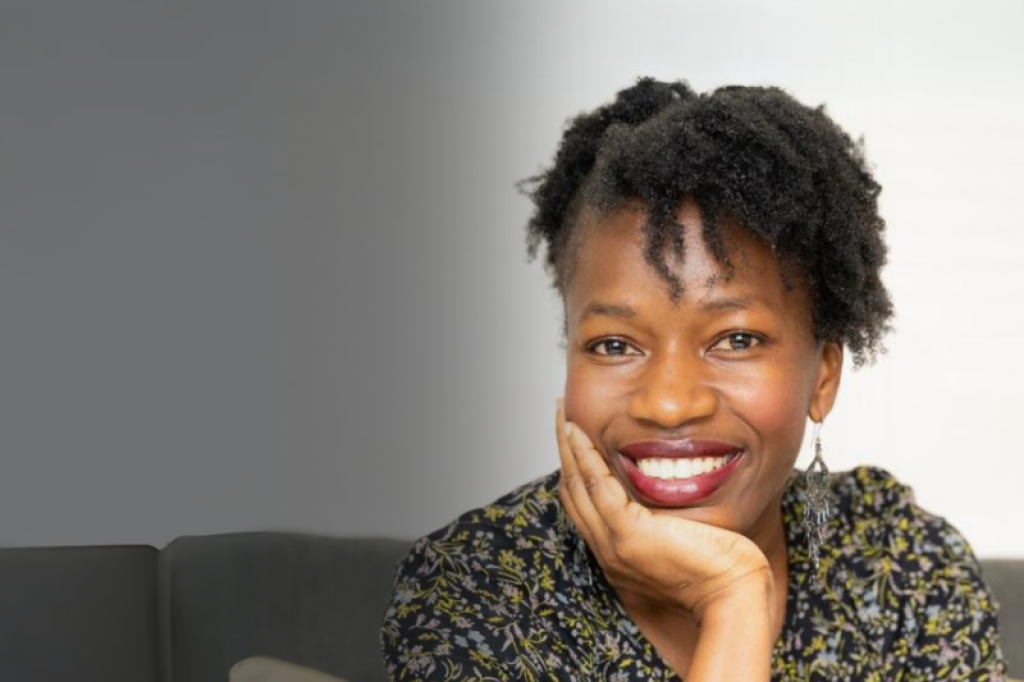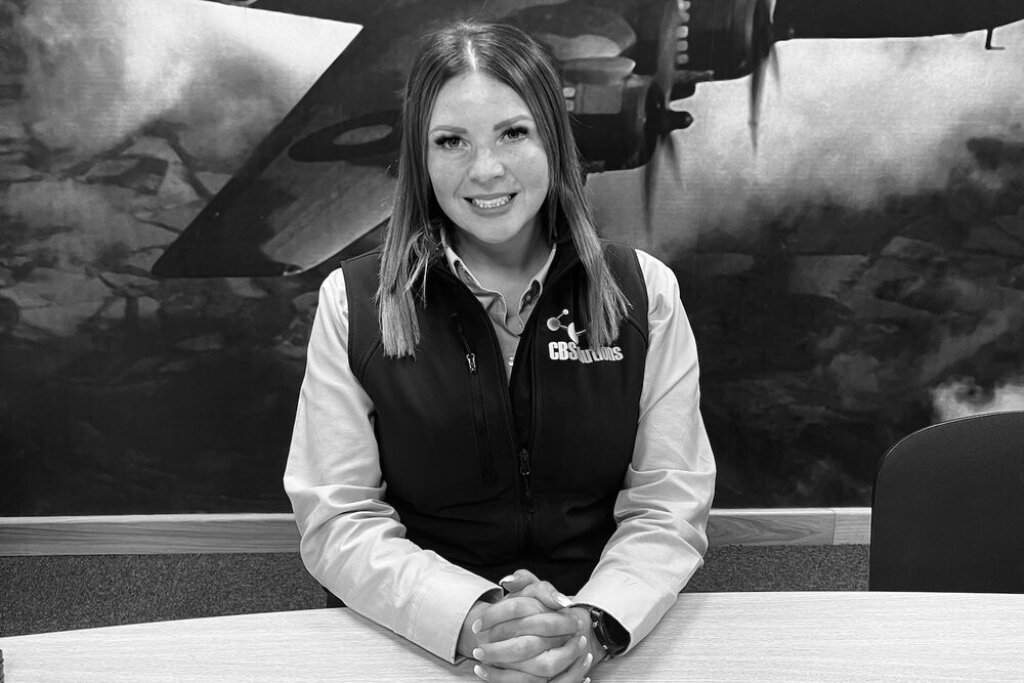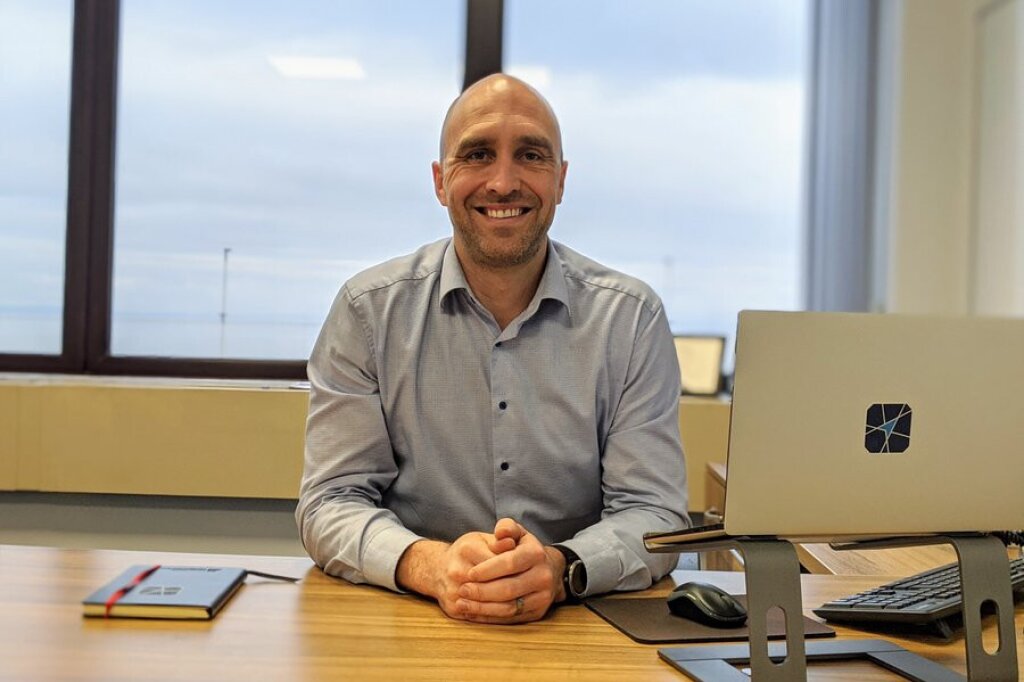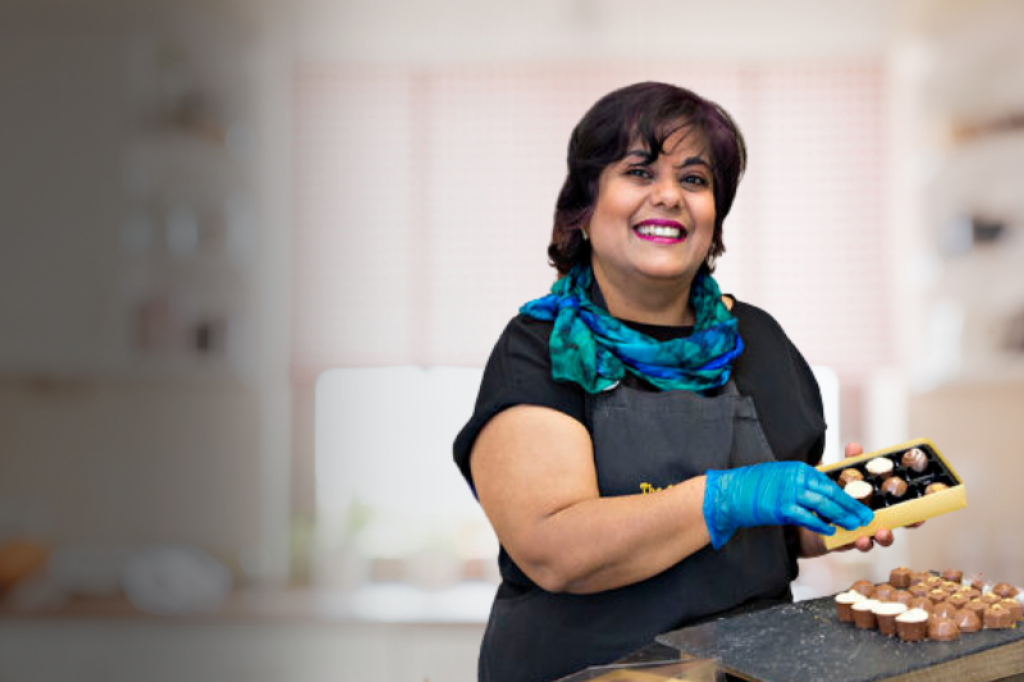Mildred Talabi had the ideas, vision and ambition – but she lacked a plan to turn them into realistic and achievable goals. Be the Business mentor Andrew May helped her flesh out her ideas and solidify her goals. However, the biggest benefit, she revealed, came through learning about the importance of thinking, reflecting for longer and looking at things from a different perspective before acting.
It can be lonely running your own business, as Mildred knows all about. She’s been self-employed for 14 years, and has been in her current role of LinkedIn personal branding speaker, trainer and coach, for the past three of them.
“I sometimes bring in freelancers to help me work on projects, but as a solo business owner, it’s largely down to me,” she said. “And the problem with that is that I can have the best ideas, but there’s no one to tell me they are rubbish.”
Therefore, when the opportunity arose to work with a Be the Business mentor, she seized it. The challenge she posed to her mentor, Andrew May, when she first met him was: “I’m looking for someone to help me become the person I want to be for where I want to go.” The first conversation with Andrew, though, made her realise she wasn’t sure exactly where she did want to go.
“From the outset he challenged my thinking,” she remembered. “I was like, ‘huh, this is interesting’.” Andrew even challenged Mildred on whether she truly wanted to work with him.
Opposites attract
“Andrew is as different from me as you could possibly imagine,” commented Mildred. “He’s a white guy based in a rural location and has spent his career literally in bricks and mortar – he’s a specialist in real estate. On paper we don’t look like a good fit but is exactly what I needed. As soon as I met him I knew it would work. However, he insisted I go away for a week, think about it, and then come back with my considered thoughts.”
This emphasis on reflection became a common thread running through the mentoring relationship. “In the past I have tended to think and then act quickly,” revealed Mildred. “With Andrew I have learned to take longer to think, as well as to think about things in a very different way. ‘Go away and think about it’ has become a sort of mantra – or, as Andrew once put it, ‘think about your thoughts’. Try and get your head around that one!”
One of the things Andrew got Mildred to think about was her long-term vision. “I’ve always thought quite short-term – one, maybe two, years ahead,” she admitted. “I’ve had an idea about what I want to do in the future, but I’ve never really crystallised it. Andrew has helped me solidify and flesh out my goals, and to break the big goal down into yearly goals and bite-sized manageable and achievable chunks.”
As a coach, Mildred works with female leaders to build their personal brands on LinkedIn. She also runs a membership community for women, called the Visible Women Tribe, which she wants to expand and develop. On a more personal level, she wants to do a podcast and carry out more speaking engagements. The “big big vision”, as she describes it, is to establish a foundation to benefit charitable causes she is passionate about and to become an angel investor in businesses aligned with her vision and interests.
“On paper we don’t look like a good fit. But he is exactly what I needed.”
Mildred Talabi
Setting realistic goals
Mildred certainly has vision, and ambition, but she admitted that some of her goals were unrealistic. “My husband would tell me that, but he can’t be objective because he’s emotionally attached. So I’ve just kept aiming high, and then being disappointed if I’m not as successful as I hoped to be.”
Andrew, who is both objective and highly experienced, introduced her to the ABC system of goal setting – or, as Andrew likes to describe it, BCA (base, chase, ace). For example, if she wants ten people on her next programme, her "base" is now six, eight is "chase" and ten is "ace".
“Before, if I didn’t hit ten, I’d think I’d failed again,” Mildred said. “Now I’ve got a series of clear goals that are designed to be realistic and achievable, but also motivational.” She also has a measurement system to keep her on track.
Lessons from the school of hard knocks
As for Andrew, while real estate has been, he said, his “love and passion for around 35 years”, he is also an entrepreneur himself (even at school he had three paper rounds and a milk round). He was involved in two startups, as well as a management buyout (MBO) that went on to have an asset base in excess of £500m, very significant revenue and over 500 staff. He also set up a new property business for a private family office, led an MBO from a collapsing public limited company and helped establish a property company for the UK Ggvernment to buy land for a school building programme.
He broke down the wealth of experience that informs his work as a mentor into three main strands. The first is general business experience – particularly helping startups to develop and grow, and manage the associated pain and angst. The second is good governance (he has experience of a variety of different governance structures, including family office, large corporates, private equity-backed businesses, public sector, universities and registered charities). And the third is what he describes as: “Andy May’s school of hard knocks.”
He added: “I like to give the benefit of all the things I’ve learned to others, especially the next generation – and that’s why I so enjoy mentoring with Be the Business. I love to see others grow.”
Andrew wasn’t Mildred’s first Be the Business mentor, as she explained. “After the second meeting with the first mentor I was matched up with, I felt strongly it wasn’t a good fit. I’d thought that I needed a ‘doer’, and while he was a really great person, his approach was to go into great detail on every aspect of my business. I know that’s important, but it doesn’t light me up. I realised I needed someone to help me ‘be’, not ‘do’. I was honest about that with him and Be the Business, and they matched me up with Andrew.”
No one size fits all
Andrew’s philosophy when it comes to mentoring is “no one size fits all.” He likes to start the relationship with a conversation in which he and his mentee tell each other about themselves, discuss what the mentee wants to achieve, and, importantly, establish that they "click". “From there, the conversation develops and opens up,” he added.
He described Mildred as the perfect mentee. “She is very personable, a great listener, very good at taking feedback, she reflects very well, and, crucially, she turns all that into action. I’ve challenged her on a number of things and I’ve seen her growing and developing and putting those ideas into practice.”
Young and growing businesses face common challenges, noted Andrew. For example: “They often try to solve issues that don’t need solving, or try to find solutions for problems that don’t exist. I help them untangle their thought processes, and challenge their thinking, and that usually leads to a different and better way of doing something. It’s about bringing a different perspective. I find that if you change the way you look at things, the things you look at will change.”
He also helps them to develop resilience – a concept that he believes is often misunderstood. “Resilience is about self-belief, motivation, the ability to focus and handle pressure. People shouldn’t be afraid to make mistakes, and shouldn’t panic when they do. Everything is a learning experience. The only true mistake is the one that you don’t learn from.”
He helps them build mental strength too. This is partly about acting according to your values, but is also to do with understanding how your emotions influence your thoughts and being able to determine when – and when not – to listen to them, he explained. “It is also fundamentally about thinking realistically and rationally, and you can use your networks or mentors to help with this. You may be a solo entrepreneur, but you will have a raft of contacts who can help you think through and solve problems – it’s like a sort of virtual personal boardroom.”
These things act as the bedrock of your business, he commented.
Making time for mentoring
Mildred and Andrew met fortnightly during the three-month mentoring programme.
“Weekly is too often,” believes Andrew. “You need to give yourself dedicated focused time to think about what you and your mentor discussed in the last meeting. We are all so busy ‘doing’, but we need to force ourselves to create more time to ‘think’.”
And as for entrepreneurs who say they lack the time for mentoring: “There’s always enough time to deal with real priorities."
Mildred is now making steady progress towards her goals. “Having a mentor has helped me step outside my business and look up, at where I’m going, where I want to be, and whether what I’m doing is going to get me there."
She’d advise any startup business to get a Be the Business mentor. “It’s a great opportunity, and fully funded.”
The experience has piqued her interest in being a mentor herself. “It would be great to offer back to someone what someone else has given to me," she added.
And Andrew wholeheartedly recommends being a mentor. “It is a joy and a privilege seeing young entrepreneurs grow and develop partly as a result of learning from my experience." There’s no silver bullet for success, he continued: “Half the time it’s about being able to reassure people that the challenges they are experiencing are routine and to be expected – they should be more worried if they’d not experienced any of these issues.”
Headline takeaways
Be clear what you want to achieve from it
Make time for it: if you think you don’t have time, you’re too busy doing the wrong things
Be open to having mentors who are totally different from you, because that’s where some of the gold is
Be certain that you click
Be receptive to feedback and turn it into action: you don’t want to be talking about the same old stuff three months in
Enjoy it and have fun
